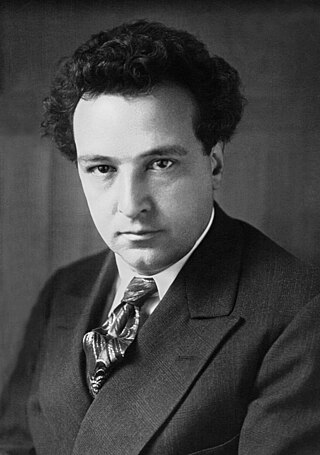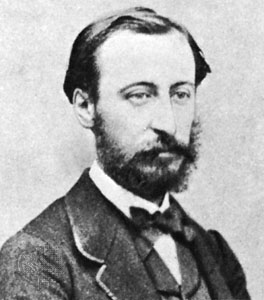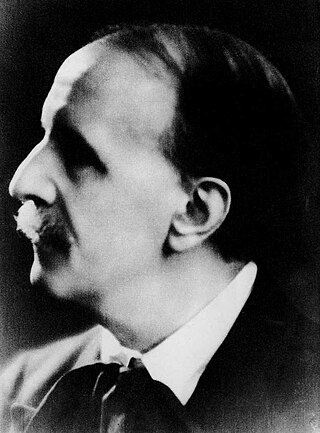
Arthur Honegger was a Swiss composer who was born in France and lived a large part of his life in Paris. Honegger was a member of Les Six. For Halbreich, Jeanne d'Arc au bûcher is "more even than Le Roi David or Pacific 231, his most universally popular work".

Mieczysław Karłowicz was a Polish composer and conductor.

Marie-Juliette Olga "Lili" Boulanger was a French composer and the first female winner of the Prix de Rome composition prize. Her older sister was the noted composer and composition teacher Nadia Boulanger.

Lucien Denis Gabriel Albéric Magnard was a French composer, somewhat influenced by César Franck and Vincent d'Indy. Magnard became a national hero in 1914 when he refused to surrender his property to German invaders and died defending it.
Susan Milan is an English professor of flute of the Royal College of Music, classical performer, recording artiste, composer, author and entrepreneur.

The Piano Concerto No. 2 in G minor, Op. 22 by Camille Saint-Saëns was composed in 1868 and is probably Saint-Saëns' most popular piano concerto. It was dedicated to Madame A. de Villers. At the première on 13 May the composer was the soloist and Anton Rubinstein conducted the orchestra. Saint-Saëns wrote the concerto in three weeks and had very little time to prepare for the première; consequently, the piece was not initially successful. The capricious changes in style provoked Zygmunt Stojowski to quip that it "begins with Bach and ends with Offenbach."

Paul Émile Ladmirault was a French composer and music critic whose music expressed his devotion to Brittany. Claude Debussy wrote that his work possessed a "fine dreamy musicality", commenting on its characteristically hesitant character by suggesting that it sounded as if it was "afraid of expressing itself too much". Florent Schmitt said of him: "Of all the musicians of his generation, he was perhaps the most talented, most original, but also the most modest". Peter Warlock dedicated his Capriol Suite to him and Swan Hennessy his Trio, Op. 54.

Georges Elbert Migot was a prolific French composer. Though primarily known as a composer, he was also a poet, often integrating his poetry into his compositions, and an accomplished painter. He won the 1921 Prix Blumenthal.

The Pasdeloup Orchestra is the oldest symphony orchestra in France.
Chanson de Nuit, Op. 15, No. 1, is a musical work composed by Edward Elgar for violin and piano, and later orchestrated by the composer. Its first publication was in 1897, though it is considered that it was almost certainly written in 1889 or 1890.

Chanson de Matin, Op. 15, No. 2, is a musical work composed by Edward Elgar for violin and piano, and later orchestrated by the composer. Its first publication was in 1899, though it is thought that it was almost certainly written in 1889 or 1890.

Kenneth Leighton was a British composer and pianist. His compositions include church and choral music, pieces for piano, organ, cello, oboe and other instruments, chamber music, concertos, symphonies, and an opera. He had various academic appointments in the Universities of Leeds, Oxford and, primarily, Edinburgh.
Ida Rose Esther Gotkovsky is a French composer and pianist. She is currently a professor of music theory at the Conservatoire National Superieur de Musique in France.
Charlotte Bray is a British composer. She was championed by the Royal Opera House Covent Garden, London Sinfonietta and Birmingham Contemporary Music Group, BBC Symphony Orchestra. Her music has been performed by many notable conductors such as: Sir Mark Elder, Oliver Knussen, Daniel Harding, and Jac van Steen.
The Symphony No. 1, H. 289, is an orchestral composition by the Czech composer Bohuslav Martinů.
Jules Mazellier was a French composer and conductor.
Marcelle Fanny Henriette Soulage was a French pianist, music critic and composer.
The Piano Concerto in C minor, Op. 12, is a three-movement composition for piano and orchestra by French composer Gabriel Pierné. The piece was completed in early 1887, shortly after Pierné returned to Paris from a three-year stay in Rome.
Claude Debussy's Six sonatas for various instruments was a projected cycle of sonatas that was interrupted by the composer's death in 1918, after he had composed only half of the projected sonatas. He left behind his sonatas for cello and piano (1915), flute, viola and harp (1915), and violin and piano (1916–1917).

The Symphony en la mineur, op. 24 by Louis Vierne is the composer's second symphonic score, after Praxinoë op. 22, and is the only symphony for orchestra by the blind organist of Notre-Dame de Paris who composed six Organ Symphonies.











